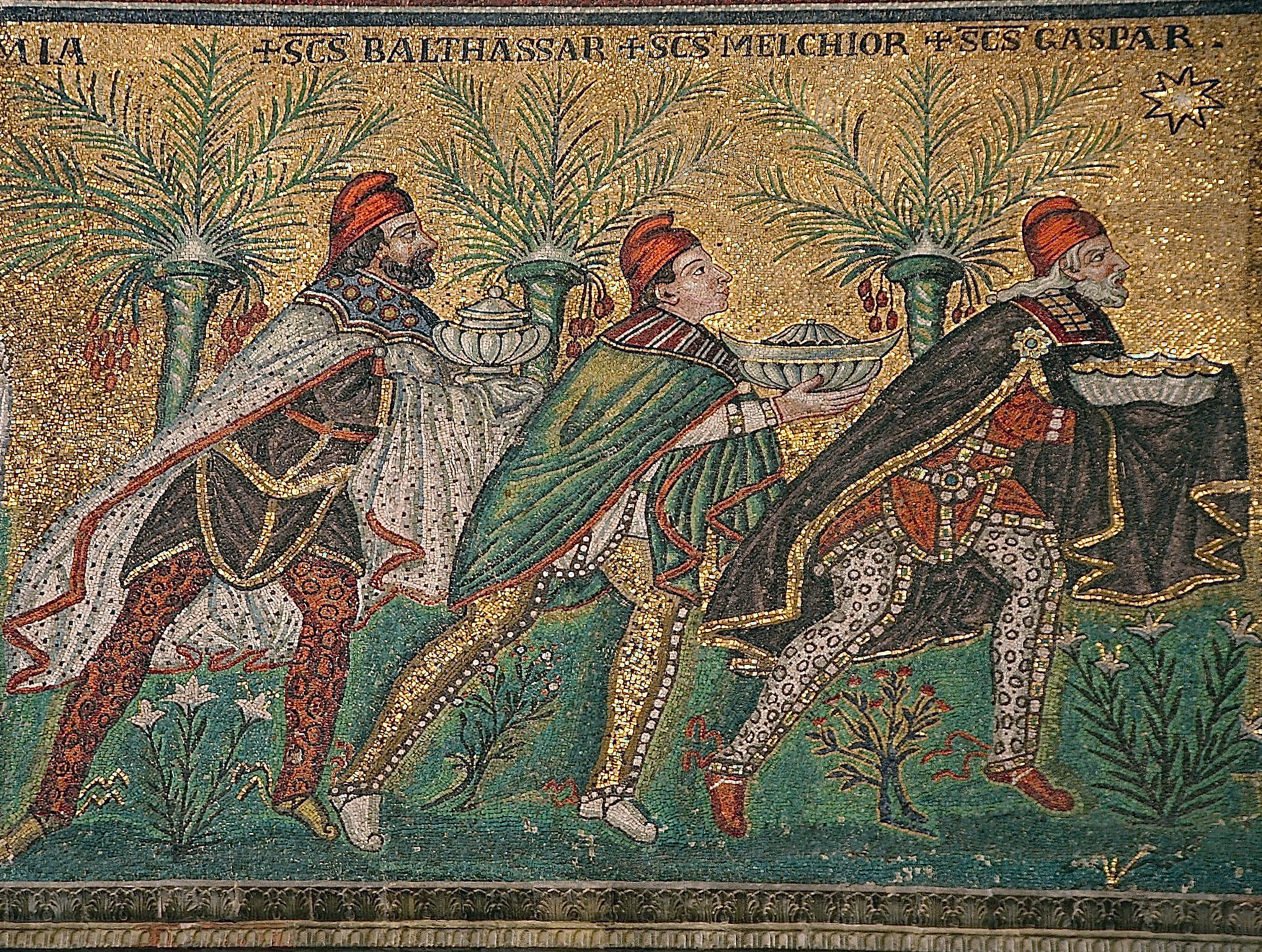
...the Magi advance with the Star:
for Thou art born for us,
Little Child, God Eternal!
(Byzantine Troparion)
In the Traditional Rite (which at present I'm following in the Breviary only, more's the pity), yesterday was the feast of the Epiphany of Our Lord, and to-day and succeeding days are ferias of Epiphanytide, with the upcoming Sunday the Feast of the Holy Family (which the Ordinary Form observed on the Sunday in the Octave of Christmas), and the Octave Day of the Epiphany on the 13th to be the Feast of the Baptism of the Lord (which I will perforce observe at Mass on this coming Sunday as the Novus Ordo directs). Therefore, from 1st Vespers on Monday evening just past until None on Saturday inclusive, the Collect of the Epiphany will be the prayer used at the Hours in the Breviary:
Deus, qui hodierna die Unigenitum tuum gentibus stella duce revelasti: concede propitius; ut, qui jam te ex fide cognovimus, usque ad contemplandam speciem tuæ celsitudinis perducamur. Per eumdem...(God, Who this day revealed Thine Onlybegotten to gentiles by the leading of a star: propitiously concede, that we who now know Thee by faith, may be brought unto the contemplation of the beauty of Thine eminence. Thro' the same...)
It is well-known that Cranmer, tho' a heretic, was rather good at translating liturgical prose; this is his version as preserved in the B.C.P. (the 1549 read "which" for the first "who"):
O God, who by the leading of a star didst manifest thy only-begotten Son to the Gentiles: Mercifully grant, that we, which know thee now by faith, may after this life have the fruition of thy glorious Godhead; through Jesus Christ our Lord. Amen.
This strikes me as a wonderful prayer, asking that we may pass from beholding God as in a glass darkly by faith, unto the clear Vision of His boundless light: it is a prayer that the faith by which we know Him now may not fail of its object, but have its eternal fruition in the rapturous gazing upon the sight, the beauty, the glory (speciem) of the infinite eminence, height and loftiness (celsitudinis) of our God in heaven evermore. This collect makes reverent play on these two words: only through Our Lord Jesus Christ can we ever hope to be conveyed from our earthly lowliness unto such a vantage point that could yield us such a surpassing sight of our God so far above us.
By leading gentiles (the Magi) by a star, the instrument of His designs, they were brought from ignorance of true religion unto the Very God made visible; likewise in all ages Divine Providence is at work to direct both Jews and Gentiles, all nations, all men in freedom to attain unto their salvation by coming nigh unto Christ - and so knowing Him now in faith, all must pray for the precious and unmeritable gift of final perseverance, that our faith may not fail, but may be succeeded by the Beatific Vision of God.








3 comments:
Is there an early tradition that celebration of the Epiphany was combined with the Baptism of Jesus and with the miracle at Cana? I ask because both the Matins and Vespers hymn Hostis Herodes impie, and the antiphons for the Benedictus and the Magnificat in the Lauds and II Vespers respectively of the Epiphany (in the Monastic Diurnal) refer to all three feasts as if being jointly celebrated. You may wish to check whether this is also so in the Roman Breviary that you use.
Yes and yes!
The Roman Breviary has the same anthems you mention - for instance, Tribus miraculis on which I blogged last year:
http://psallitesapienter.blogspot.com/2008/01/tribus-miraculis.html
Holding Epiphany a threefold feast is very ancient, and shews it forth as a feast of the Divine Manifestation, firstly, when the Star revealed Christ to the Wise Men; secondly, when He was baptized by John, inaugurating His public ministry; and thirdly when at Cana He worked the first of His signs, shewing forth His glory, and His Disciples believed in Him.
Thank you, Joshua, for confirming my guess. All the more sad that Epiphany is so minimally celebrated in Australia these days.
Post a Comment